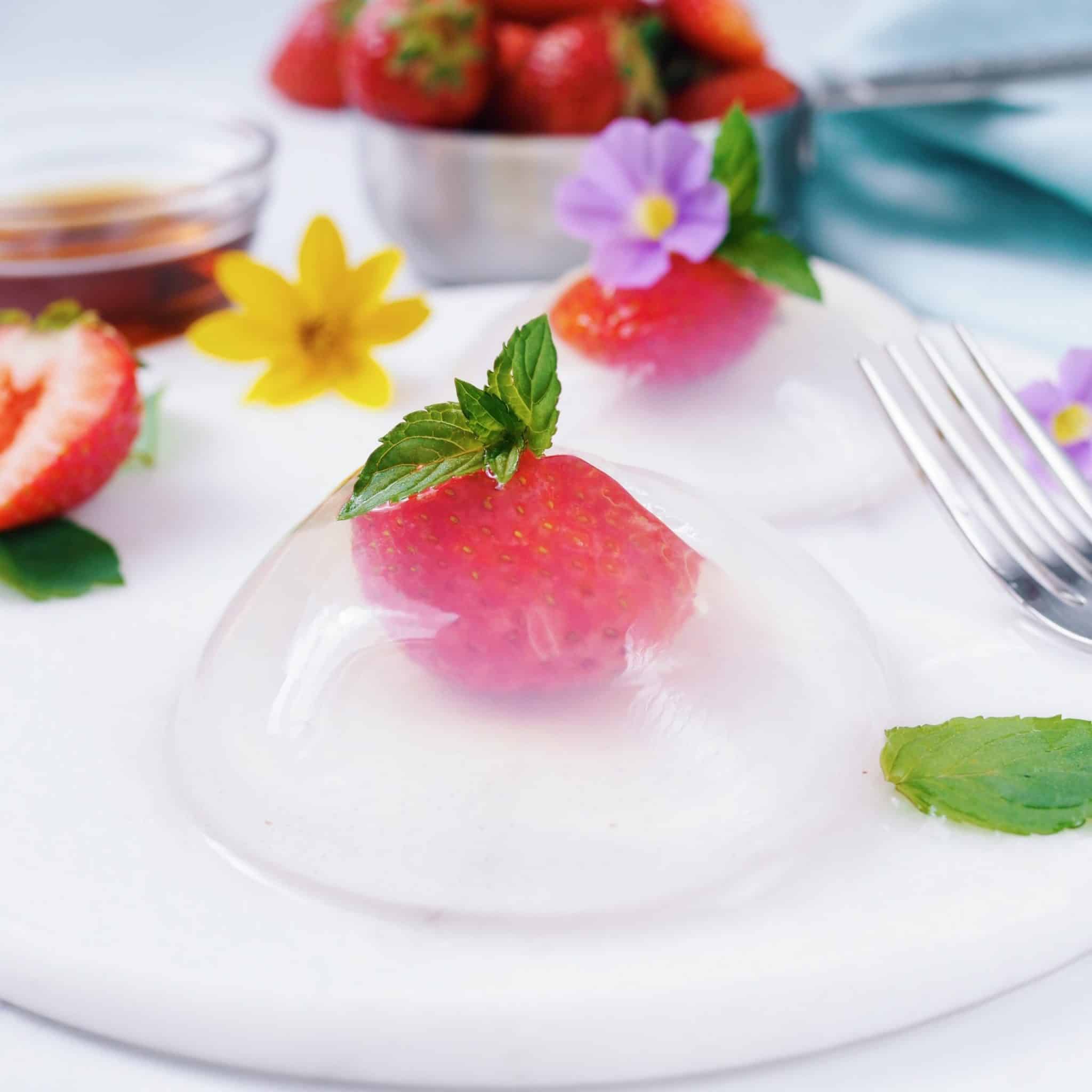
Originally made from spring water from the Japanese alps and for a time, only available in two Japanese cafes, it's become somewhat of a foodie folklore that's really picked up popularity around the world. The shiny, transparent dessert is made of mineral water and agar, a vegan alternative to gelatin. If you were interested in trying it, it's making its debut at the food flea market Smorgasburg in Brooklyn, New York. Technically called "mizu shingen mochi," or “water droplet cake,” it melts and evaporates if left out for even just 30 minutes at room temperature. They're as gorgeous as they are delicious (and surprisingly enough, pretty good for you, too). They're coming to the United States, and the game has just been leveled up. Joy recommends sweetened condensed milk and powdered black sesame seeds.Ī version of this post previously appeared in November 2015.This is dessert like you've never seen it before: Japanese raindrop cakes - transparent bubbles of deliciousness - are an actual thing. The original mizu shingen mochi is served with kinako (toasted soybean flour) and dark sugar syrup. To serve, carefully drop the mochi out of their molds and serve immediately with the garnish of your choice. Refrigerate the mochi for several hours or overnight.Ħ. Pour the liquid into the jelly molds and pop any bubbles you see.ĥ. Continue heating and stirring, at 30 second intervals, until the agar is completely dissolved, 5 to 10 minutes.Ĥ. While stirring, sprinkle in the agar powder.ģ. Microwave 30 seconds and stir until the sugar dissolves. Mix the water and sugar in a microwaveable measuring cup.Ģ. All of the ingredients and the dewdrop-shaped jelly mold can be purchased online.ġ. You can whip up your own raindrop cakes (but you'd better eat them fast) with the recipe below from The Cooking of Joy.

But when you look this good, who needs flavor? How does the raindrop itself taste? “Like water-flavored Jell-o,” wrote one blogger who had made her own. True to the original recipe, Wong's raindrop cakes will be served with a drizzle of brown sugar syrup and a dusting of kinako, or roasted soybean flour. “It’s very delicate and fragile.”Įventually, he got it. Some people have speculated that the chemistry of Japanese mineral water may be necessary to achieve the perfect consistency. “The cake has to maintain its shape but still have the texture of water,” Wong said. New York City water may be good for bagels, but dewdrop cake is something altogether. Wong told Huffington Post that adapting the ephemeral dessert here was trickier than he expected. In fact, the original mizu shingen mochi was made with spring water from the Japanese Alps and was only available in two Japanese cafes-both of which quickly became foodie destinations. The Japanese treat called mizu shingen mochi, or “water droplet cake,” can only last about 30 minutes at room temperature before vanishing like the morning dew. Now, New York City foodies can get in on the trend, as enterprising American chef Darren Wong is offering it at Brooklyn "food flea market" Smorgasburg. With dewdrop cake (also called raindrop cake), you get both: a work of culinary art, and a dessert craze that has patrons lining up for a taste. Nobody does pretty-looking food or edible fads quite like the Japanese.

Posted by The Huffington Post on Thursday, March 31, 2016

Raindrop Cake Looks Awesome And Is Almost Zero CaloriesThis raindrop cake is making its U.S.


 0 kommentar(er)
0 kommentar(er)
